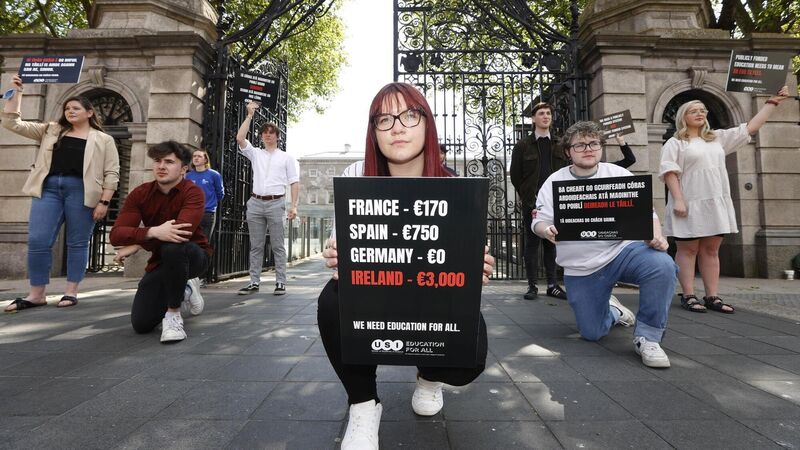Students call for €3,000 college fee to be scrapped

Union of Students in Ireland president Lorna Fitzpatrick led today's demonstration outside Leinster House calling for the abolition of the €3,000 student contribution charge. Picture: Conor McCabe
The €3,000 student contribution charge expected from college students each year should be abolished, and Ireland should move to a fully publicly-funded model of third-level education.
That’s according to the Union of Students Ireland (USI), which staged a socially distanced protest outside of Leinster House today to highlight the high fees required here for an undergraduate degree.










